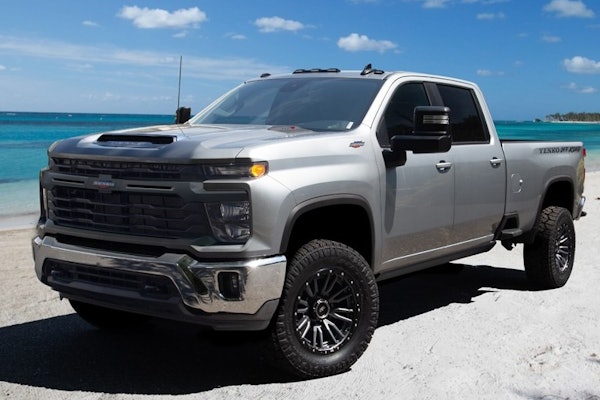First things first: You have until the end of this month to contact your members of Congress and urge them to adopt the U.S. Senate’s proposal to set FY 2003 highway program spending at $31.8 billion, its current level. Assuming there are no extensions, this is the last month Congress will haggle over how much highways will get the next fiscal year – so make sure they hear the $31.8 billion figure loud and clear.
Why get the bullhorn out? Because the FY 2003 amount sets the baseline for the real shooting match: six-year reauthorization of the Transportation Equity Act for the 21st Century, which expires a year from now. Construction associations have already drawn up their battle plans, including the American Road & Transportation Builders Association.
ARTBA’s plan is admittedly aggressive. “The last time there was a gas tax increase solely for highway construction was in 1982 during the Reagan administration,” says Matt Jeanneret, vice president of communications. Using Federal Highway Administration data, ARTBA estimates it will take $50 billion annually over the next six-year reauthorization period just to maintain a status quo condition on the nation’s highways and bridges. What really is needed is a federal highway program that grows to $60 billion by FY 2009, including a substantial increase for the mass transit program.
And so the association is – gulp – calling for an additional gas tax under the banner “Two cents makes sense.”
ARTBA says TEA-21 doesn’t need revolutionary new changes. Improvements are needed though, in the way the highway user fee revenues are managed. Right now, user fees collected but not spent during a fiscal year are warehoused, not even earning interest. (Only the federal government would put its money in a place where it doesn’t earn interest.) Because of this funding method, a $60 billion highway program would require at least a federal motor fuels tax increase of 16 cents per gallon over the six-year program. Try selling that to the motoring public.
Instead, pay-as-you-go funding would ensure user fees collected during a year would be spent that year. The required gas tax increase would then be much less, since revenues would only need to cover outlays instead of obligations. So ARTBA is proposing a gradual ramp up of the gas tax of two-plus cents per gallon per year from fiscal 2004 through fiscal 2009.
For the construction equipment industry, the association says this ramp up would generate an additional $13.5 billion of construction equipment sales during the six-year period. You can view ARTBA’s entire proposal by going to www.artba.org.
Whether you agree with ARTBA or not, you have a great opportunity to influence what the next transportation program will look like by making your opinions known to the Federal Highway Administration NOW. Simply log on to their website, www.fhwa.dot.gov/reauthorization, where they are actively soliciting opinions. You can bet the anti-growth, anti-highway groups are logging in. Make sure you do, too.







